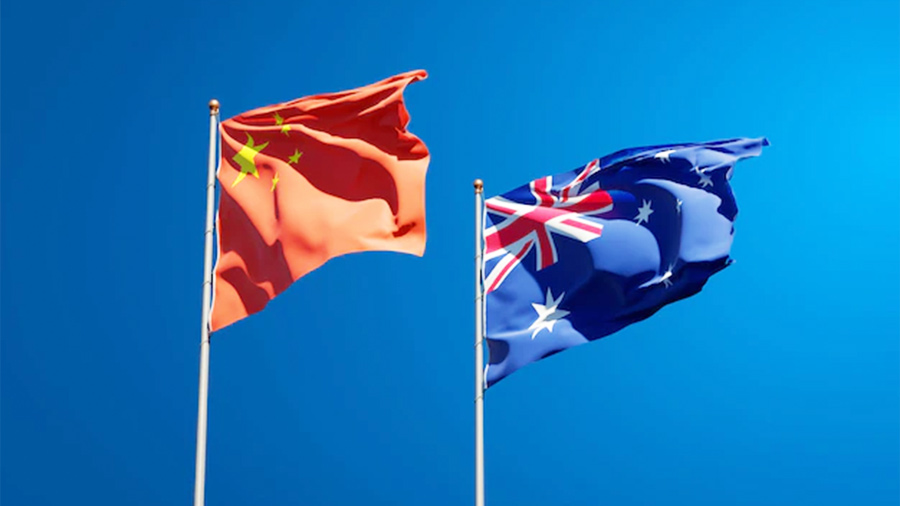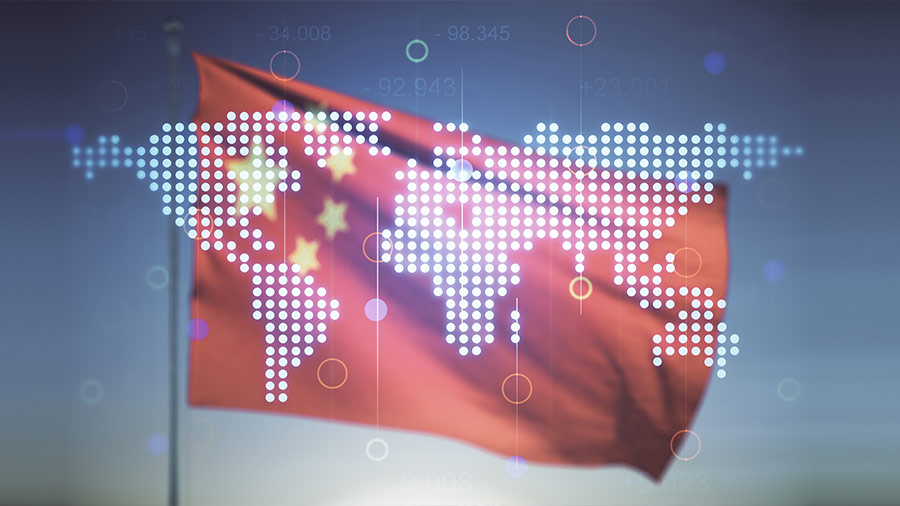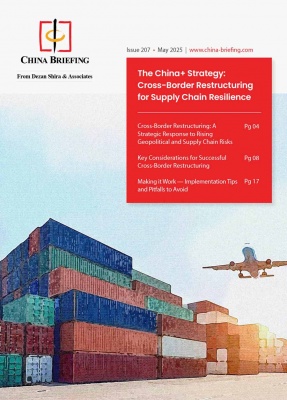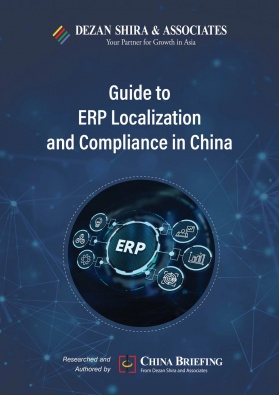How Swedish Companies Navigate China’s Evolving Market with Strategic Localization and Diversification
According to a recent white paper, Swedish multinational corporations (MNCs) are navigating the complexities of the Chinese market by adopting “China-for-China” strategies, focusing on localizing supply chains and investments while also exploring opportunities in other Asia-Pacific (APAC) countries to enhance resilience and growth amidst global uncertainties.
As global geopolitical dynamics shift and economic uncertainties arise, multinational corporations (MNCs) face a distinctive blend of challenges and opportunities in China. The Chinese market is increasingly influenced by a complex interplay of trade negotiations, regulatory changes, and political developments. Nevertheless, for Swedish businesses, this evolving environment presents not only challenges but also significant opportunities to adapt, innovate, and prosper.
China, the world’s second-largest economy, has consistently been a crucial market for Swedish firms. Its substantial consumer base, economic growth, and strategic significance have long made it a focal point for global business endeavors. Despite recent developments, Swedish MNCs continue to view China as a market rich with opportunities, prompting them to refine and strengthen their strategies.
This article draws on insights from a recent white paper produced in collaboration with the Swedish Chamber of Commerce in China and supported by the Swedish Foundation Stiftelsen Fonden för Exportutveckling. The white paper provides a thorough analysis of how Swedish businesses are navigating the evolving Chinese market and adapting their strategies in response to new developments.
Sweden-China economic relations
Sweden’s economic relationship with China is marked by both deep integration and increasing complexity. As China is Sweden’s largest trading partner in Asia, the economic ties between the two countries have grown significantly over the years. Approximately 10,000 Swedish companies engage in trade with China, and over 600 Swedish or Sweden-affiliated companies maintain operations within the country, reflecting the critical role China plays in Sweden’s trade landscape.
The trade between Sweden and China is heavily oriented towards industrial and engineering products, which constitute nearly half of Swedish exports to China. This category includes a wide array of goods, from advanced machinery to automotive components. Notably, Sweden exports significant quantities of medical and pharmaceutical products, accounting for about one-fifth of the total exports, alongside raw materials such as wood, paper, and iron ore, which make up around one-tenth.
Imports from China to Sweden also reflect a strong focus on engineering products, which, similar to exports, represent almost half of the total. Additionally, clothing is a significant import category, constituting about 10 percent of the total imports. The trade in services between the two nations is also noteworthy, amounting to roughly one-fifth of the total value of goods traded, underscoring the multifaceted nature of their economic relationship.
While Sweden has shown an interest in the broader European discussion on de-risking, it has not fully abandoned its liberal economic principles. For instance, Sweden’s investment screening mechanisms, implemented later than in most European countries, remain limited in scope, focusing primarily on security-related transactions. This reflects a balancing act between maintaining robust economic ties with China and addressing growing concerns about dependency and geopolitical risks.
De-risking in the context of Sweden-China relations
The global business environment has increasingly become politicized, particularly in trade relations between China and Western nations. This shift has been influenced by various factors, including escalating trade tensions between China and the US, the COVID-19 pandemic, and the ongoing conflict in Ukraine. These events have prompted Western companies to reassess their reliance on Chinese markets and suppliers.
In response, the concept of “de-risking” has gained prominence. Unlike “decoupling,” which implies a complete economic separation from a country, de-risking involves strategies to reduce dependence on potentially risky markets while maintaining a level of engagement. European leaders, including those from Sweden, have embraced this balanced approach. Ursula von der Leyen, President of the European Commission, has stressed the importance of continuing trade with China, advocating for a strategy of “de-risking, not decoupling.”
For Swedish companies, this approach represents a nuanced balancing act. Despite growing calls within Europe for reduced dependence on China, Swedish businesses are operating in a landscape where China remains a crucial market. The substantial investments and significant market opportunities in China provide strong incentives for Swedish firms to maintain their presence, even amid rising concerns about geopolitical risks and supply chain challenges.
As Swedish MNCs navigate these complexities, they are focusing on de-risking to manage potential disruptions while leveraging the vast opportunities that the Chinese market offers. This evolving strategy highlights the need for Swedish companies to stay adaptable and strategic, effectively balancing risk management with continued investment and growth in China.
Investment trends of Swedish MNCs in China
In recent years, Swedish multinational MNCs have demonstrated a notable shift in their approach to the Chinese market. Whereas discussions about “decoupling” from China were prevalent between 2021 and 2023, the focus in 2024 has pivoted towards more nuanced strategies. The emphasis has transitioned from severing ties to managing risks and strengthening supply chains within China. This shift reflects a broader recognition of the strategic value that the Chinese market continues to offer despite its complexities.
Survey data reveals a strong commitment among Swedish MNCs to deepen their engagement in China. Rather than considering exit strategies, a significant majority—nearly 75 percent—are planning to enhance their presence through additional investments and acquisitions. This commitment highlights a positive outlook on China’s market potential and the continued importance of maintaining a foothold in the region.
Several strategic investments exemplify this ongoing commitment. For instance, Swedish companies are leveraging China’s innovation landscape to stay competitive.
In addition to innovation, the efficiency and speed of Chinese supply chains are unparalleled. The ability to quickly and cost-effectively source materials and manage production is a significant advantage that Swedish MNCs are keen to maintain. This advantage is particularly evident in sectors where high-quality, timely delivery is crucial.
Risk management and de-risking efforts
Current approaches
Despite the prevailing uncertainties in the global landscape, a substantial portion of Swedish MNCs surveyed in the white paper (approximately 25 percent) have not taken significant steps to de-risk from the Chinese market.
These companies emphasize the enduring importance of China, viewing its market potential as unmatched globally. They argue that the risks associated with China are not substantial enough to warrant major changes in their strategies. A Swedish container manufacturer, for instance, underscored China’s unrivaled position as a leading market with immense potential, an optimal base for raw materials, and a hub of innovation and cost-effective talent.
Shift towards minor de-risking measures
Although none of the surveyed companies are planning to exit China entirely, around 70 percent have engaged in or are contemplating minor de-risking measures. These efforts generally involve updating contingency plans or developing backup strategies for their Chinese supply chains in response to geopolitical developments.
A Swedish industrial MNC highlighted a strategic pivot from global capacity expansion to a China-for-China approach, focusing on bolstering their operations within China primarily for local market demands. This shift reflects a broader trend towards isolating Chinese supply chains to mitigate specific regional risks while maintaining a robust presence in the market.
Growing China-for-China approach
Indeed, a notable trend among Swedish MNCs is the adoption of China-for-China strategies. This approach entails developing production and supply chains within China to cater specifically to the Chinese market, thereby insulating these operations from broader global risks. About a third of surveyed companies have isolated their Chinese operations to some extent, reflecting this trend. This strategy not only helps mitigate dependency on external factors but also leverages China’s unique advantages in terms of cost, quality, and innovation.
Conversely, some companies have increased the integration of their Chinese supply chains with global operations. Around 13 percent of respondents have enhanced this integration over the past five years, capitalizing on the superior cost-effectiveness and quality control that Chinese suppliers offer. This integration highlights the continued strategic importance of China in global supply chains, demonstrating that, despite geopolitical concerns, the benefits of operating within China remain significant.
Comparative analysis: Sweden’s approach to China vs. other markets
Swedish companies’ approach to China is marked by a complex balance of deep engagement and growing caution, reflecting broader geopolitical and economic shifts. While China remains a critical market for Swedish businesses, the rising geopolitical uncertainties, coupled with internal economic challenges in China, have prompted many companies to reassess their strategies. This reassessment often leads to a comparative evaluation of China against other countries in the APAC region, particularly India.
China: A pillar of Swedish industrial strategy
China’s role in Swedish industrial strategy is underscored by its comprehensive and advanced supply chains, particularly in manufacturing and engineering. For many Swedish companies, China offers unparalleled advantages, such as cost-effective production, high-quality output, and a vast market for industrial goods. The Chinese market is especially vital for Swedish exports of engineering products, medical supplies, and raw materials. Furthermore, the established infrastructure and the availability of skilled labor in China make it an indispensable hub for production and innovation.
However, Swedish companies are increasingly mindful of the risks associated with their deep reliance on China. Survey data from the white paper indicates that while geopolitical concerns are the most cited reason for hesitance in expanding operations in China, only 27 percent of respondents believe these developments have had a significant impact on their APAC strategies over the past five years. This suggests a nuanced approach where companies acknowledge risks but do not view them as immediate barriers to their current operations in China.
India and other APAC countries: Complementary, not substitutes
When comparing China with India and other APAC countries, Swedish companies generally view these markets as complementary rather than substitutes. India, while emerging as a significant player, is not seen as a direct replacement for China. The production capabilities, supply chain integration, and market scale in China are not easily replicated in India. As one Swedish manufacturing company noted, the material and product types available in China are distinct from those in India, making direct comparisons challenging. Moreover, the level of commitment to quality and deadlines observed in Chinese business practices often surpasses that in India, further solidifying China’s unique position in Swedish industrial strategies.
However, India is increasingly being considered for diversification, particularly in sectors where it offers competitive advantages, such as certain types of manufacturing and IT services. Some Swedish companies are exploring India as part of a broader strategy to mitigate risks associated with over-reliance on China. This diversification is not about replacing China but rather about complementing it—using India to support global operations while maintaining strong ties with Chinese partners.
Diversification and regionalization strategies
Beyond India, other countries in the APAC region are also being considered for expansion and diversification. Swedish companies are adopting a “regionalization” strategy, where they seek to develop more localized supply chains and operations to meet the specific needs of regional markets. This approach is driven by a need for greater agility and resilience in the face of global uncertainties, such as those experienced during the COVID-19 pandemic.
For instance, some Swedish companies have increased their footprint in both China and other APAC countries, such as Vietnam and Indonesia, to secure market positions and minimize risks from trade barriers and geopolitical tensions. The focus is on building a diverse supplier base that can quickly adapt to changes, ensuring that production and supply chains remain robust regardless of external disruptions.
Key takeaways
As Swedish MNCs navigate the complexities of the Chinese market, several trends keep emerging. Swedish companies are restructuring their supply chains with a primary focus on enhancing local efficiency rather than reacting to political factors. Although geopolitical tensions are a concern, only 27 percent of respondents believe these issues have significantly impacted their APAC strategies in recent years. Instead, the main driver for these adjustments remains the need to adapt to local market conditions.
Despite the challenges, Swedish MNCs are showing a strong commitment to China. None of the surveyed companies plan to exit the market; instead, 26 percent are maintaining their investment levels, and 66 percent are actively seeking growth opportunities. To address potential risks, 70 percent are implementing measures such as diversifying investments and strengthening contingency plans.
A notable trend among Swedish MNCs is the adoption of “China-for-China” strategies. These approaches focus on localizing production and supply chains to better serve the Chinese market. This often involves scaling down certain operations while increasing investments in local research and development and forming strategic partnerships.
Swedish MNCs remain dedicated to China due to its substantial market size, growth potential, and well-established networks. The significant investments already made in the country further reinforce their decision to continue expanding within this key market.
Beyond China, other APAC countries are also becoming increasingly relevant for Swedish MNCs. Approximately 50 percent of the surveyed companies are exploring new investment opportunities in the region, aiming to strengthen their supply chains and access additional markets.
These insights highlight how Swedish MNCs are adapting their strategies to the evolving landscape in China and the broader APAC region, focusing on sustainable growth amidst a complex global environment.
About Us
China Briefing is one of five regional Asia Briefing publications, supported by Dezan Shira & Associates. For a complimentary subscription to China Briefing’s content products, please click here.
Dezan Shira & Associates assists foreign investors into China and has done so since 1992 through offices in Beijing, Tianjin, Dalian, Qingdao, Shanghai, Hangzhou, Ningbo, Suzhou, Guangzhou, Haikou, Zhongshan, Shenzhen, and Hong Kong. We also have offices in Vietnam, Indonesia, Singapore, United States, Germany, Italy, India, and Dubai (UAE) and partner firms assisting foreign investors in The Philippines, Malaysia, Thailand, Bangladesh, and Australia. For assistance in China, please contact the firm at china@dezshira.com or visit our website at www.dezshira.com.
- Previous Article China Monthly Tax Brief: August 2024
- Next Article Beijing Releases Negative List to Facilitate Data Export in Free Trade Zone
























